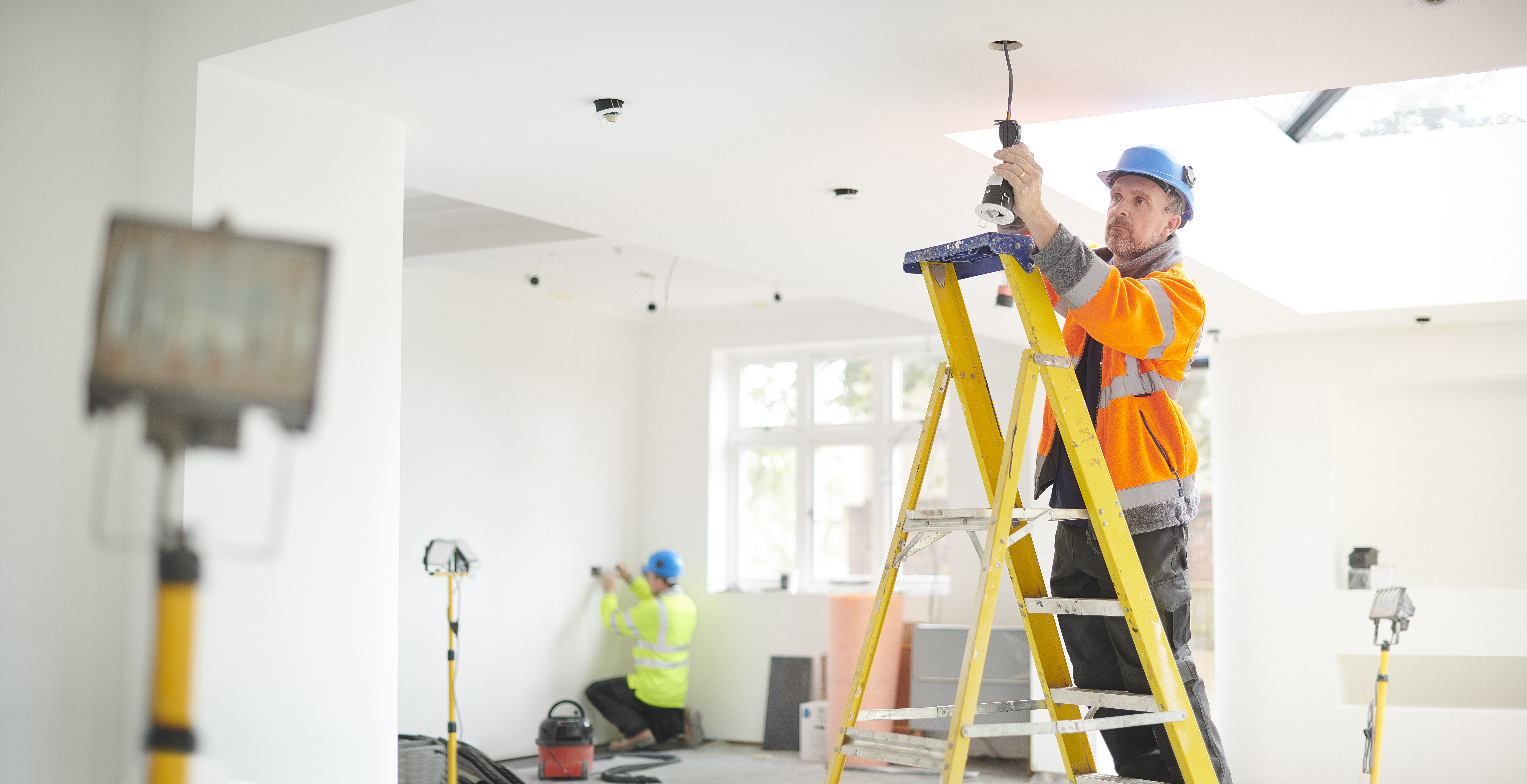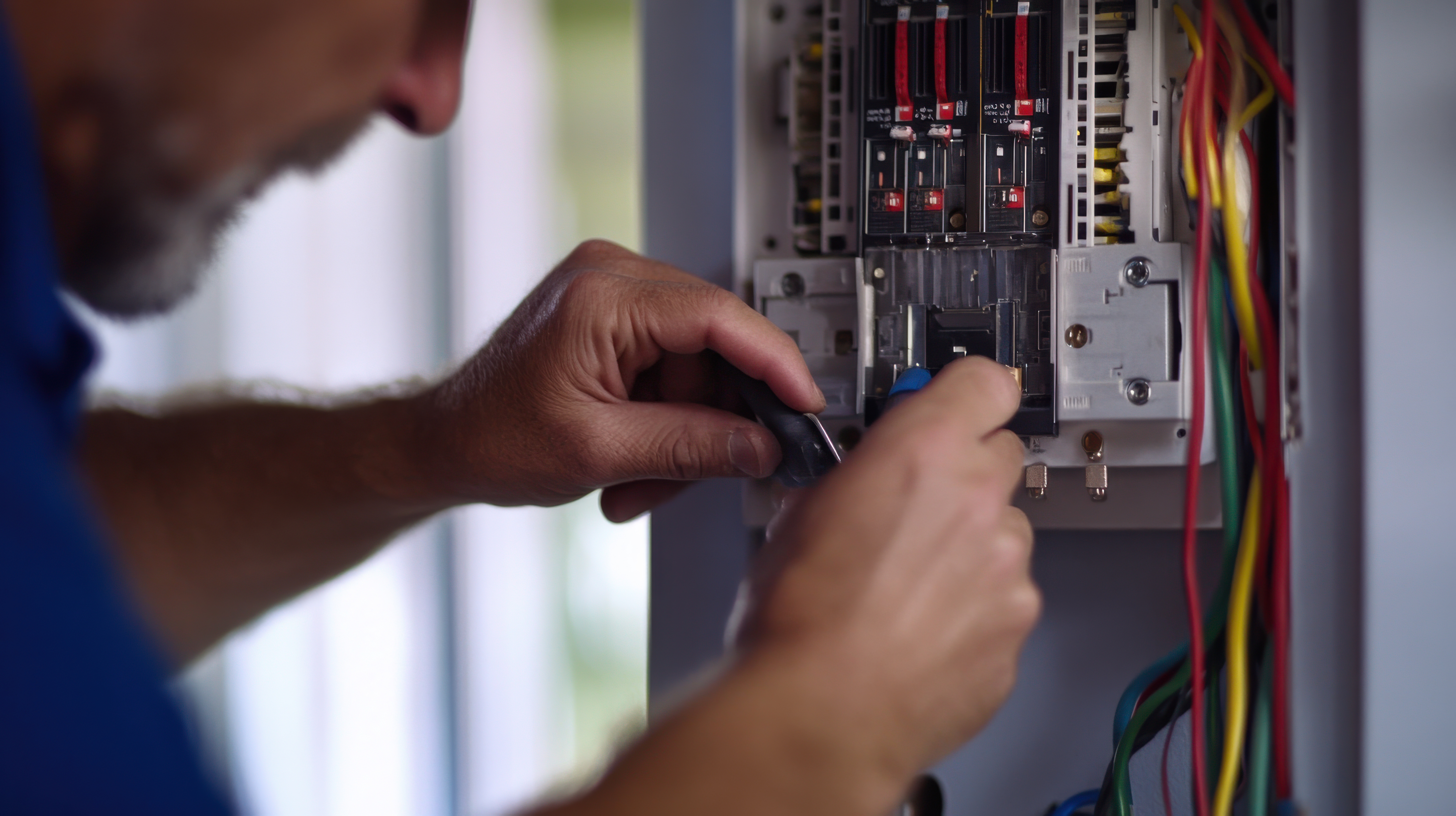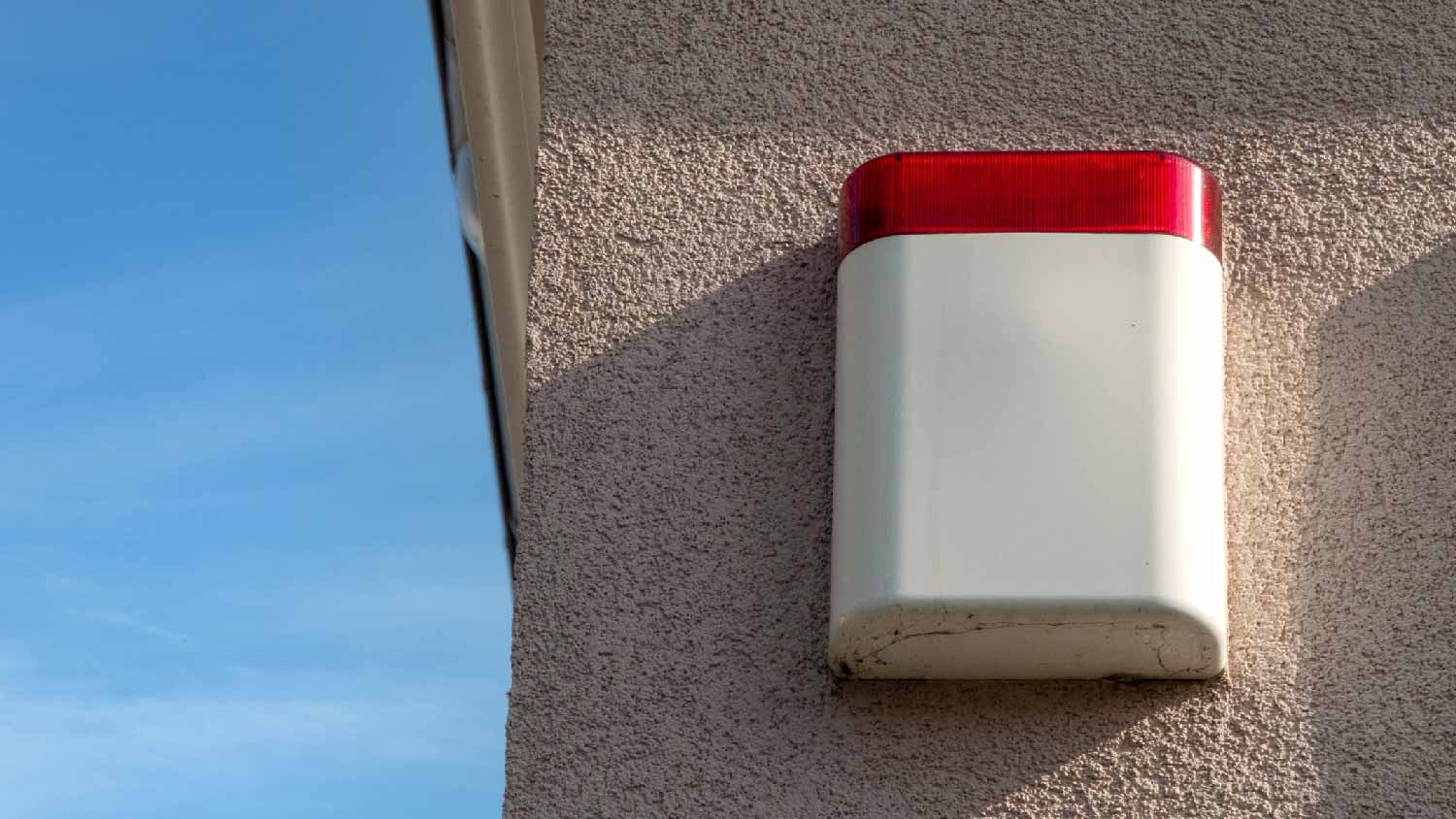
Wondering what rewiring a house costs in Atlanta? Find out what drives the price and how to plan for this important electrical upgrade in your area.
Learn how to properly maintain a smoke detector and keep your family safer


Smoke detectors last up to 10 years, at which point it’s best to replace them for your safety.
Replace smoke detectors that chirp constantly, fail a test, go off for no reason, or have been recalled.
Smoke detectors can cost $10 to $50 per detector depending on the features.
Knowing how long smoke detectors last is important information for every household. You need to test and replace faulty smoke detectors regularly for the health and safety of you and your family. In addition, it’s a requirement in most states for residences and rental properties to have working smoke detectors. Find out how long the average smoke detector lasts and how to test its functionality for peace of mind.
Most smoke detectors last 10 years, according to the National Fire Protection Association (NFPA). The life expectancy depends on the type of smoke detector you have. Over time, dust gathers inside smoke detectors, wearing down the sensors. Older smoke detectors are less sensitive, so you may not have enough time to escape when the alarm goes off when there’s a fire. They are also more susceptible to electrical corrosion.
Even if your smoke detector hasn’t reached the 10-year mark, you should replace it if it chirps after you’ve replaced the batteries (or if the alarm fails to sound when you perform the recommended monthly test). Replace connected smoke alarms all at once, even if some are still working. A home security pro or an electrician can help you get your new smoke detectors installed.
Smoke detectors with CO detectors last about five to seven years and offer added safety by detecting both smoke and carbon monoxide (CO) gas. If a smoke detector also contains a CO detector, it will likely need replacement sooner. CO detectors have a limited life span due to the sensitivity of their sensors. Following the manufacturer's guidelines and regularly testing and replacing these dual detectors is crucial to ensure proper functioning and protect against potential hazards.
Battery-operated detectors rely solely on batteries and last five to 10 years before they need a replacement. Hardwired detectors are connected to the electrical system and commonly have a backup battery that lasts around one to two years.
Deciding where to put smoke detectors depends on the type of smoke detector you choose. While hardwired detectors offer continuous power, battery-operated ones are easier to install and suitable for areas without access to electricity. However, it’s super important to replace their batteries in a timely manner for optimal performance.
| Smoke Detector Type | Life Expectancy (Years) |
|---|---|
| Combo smoke and CO | 5–7 |
| Battery-operated | 5–10 |
| Hardwired | 1–2 |
How long do smoke detector batteries last? The U.S. Fire Administration (USFA) encourages people to replace smoke detector batteries (or the backup batteries if they have hardwired smoke alarms) at least once a year and to test the alarms monthly to ensure none need to be replaced.
Here’s how you know if a smoke detector is going bad and when you should take action.
A smoke alarm that needs attention will chirp for a long time, sometimes indefinitely, if it’s hardwired to your electricity. But you’ll want to make sure you take action ASAP once you hear that sound because it means the batteries in the smoke detector are going bad and need to be replaced.
How long do hardwired smoke detectors last? As mentioned above, age can be a big indicator that it’s time to replace a smoke detector. It’s pretty simple to check the age of your smoke detector. Take a look at the back of the alarm up close. A manufacturing date will tell you when the alarm was made. If that date was 10 years ago or more, it’s time to replace it.
Do this same check on all the smoke alarms in your house, as many homes have had all their smoke detectors installed around the same time. Note: If your smoke detector is on a high ceiling, you may need to call someone for the job.
To test your smoke alarms, follow these simple steps:
Alert everyone in your home about the test.
Press and hold the "test" button on the alarm until you hear a loud siren sound.
Observe if the alarm produces a strong, clear noise.
Repeat these steps with all smoke alarms in your house, including those with CO detectors.
If you don't hear the sound, immediately replace the batteries or the entire alarm unit.
Regularly repeat this test monthly to ensure your alarms function correctly.
There are many reasons why your smoke detector is going off even when there’s no fire or smoke. Once you’ve ruled out other issues like high humidity, low batteries, bugs, chemicals, or dust that could trigger the alarm, you likely need a new unit.
If your smoke detector manufacturer recalls the unit, you should replace it as soon as possible. You’re likely to hear about large-scale recalls on the news, but you can also check the manufacturer’s website or call them for any updates. Often, the recalls are because the alarm fails to go off in the event of a fire, so don’t delay taking care of it.

You can replace hardwired detectors if you can reach them and have skills sufficient to replace a light fixture. (Be sure to turn off the electricity at the breaker box first.) Otherwise, you need to figure out who installs smoke detectors. Your best bet is to hire an electrical company near you or an alarm service company to do the job.
The cost to replace a smoke detector can vary widely, depending on where you live, the type and number of units you need to replace, where they are, and the condition of the wires. A smoke alarm can cost as little as $10 per unit for a basic model or as much as $50 per unit for a wireless or hardwired smoke alarm with a built-in carbon monoxide detector.
A local home security company can do the installation for you if you prefer this peace of mind. These service providers charge $35 to $40 per detector plus a $50 service charge.
These fire safety tips from the NFPA will help you and your family make a plan and stay safe.
Install smoke alarms inside and outside each bedroom and sleeping area. Install alarms on every level of the home, including the basement. (Large homes may need extra smoke alarms.)
Interconnected smoke alarms—whether hardwired or wireless—are best because when one is activated, they all sound.
Test all smoke alarms at least once a month. Simply press the test button to be sure the alarm works.
There are two types of smoke detectors. Ionization smoke alarms are quicker to warn of flaming fires, whereas photoelectric alarms are quicker to warn of smoldering fires. It’s best to use some of both types throughout your home.
A smoke alarm should be on the ceiling or high on a wall. Install wall-mounted alarms no more than 12 inches from the ceiling to the top of the alarm.
Don't install smoke alarms near windows, doors, or ducts where drafts might interfere with their operation. Keep alarms at least 10 feet from a stove to reduce false alarms.
Make sure everyone in your home knows how to respond if they hear a smoke alarm.
Follow the manufacturer’s instructions for cleaning smoke detectors.
Don’t place smoke alarms too close to fans or air ducts when mounting them. Moving air can displace smoke from the sensor. You also don’t want your alarms right by the kitchen stovetop or bathrooms. Smoke from cooking and steam from a shower can set off an alarm.
D2D Electrical has performed a wide variety of services in my house such as: upgrading my electrical panel, wiring a 220v line to my hot tub and installing a line for an electric car in my garage. The team was very courteous and professional. They treated my home with great respect and...
Balkan Electric have established themselves as valued and trusted partner to me and my family on all electrical projects. We have worked with Kosta for over 15 years on a number of home / residential new construction and remodel projects as well as commercial office and warehouse applications...
STAY AWAY FROM THESE BROTHERS!! They have absolutely NO idea what they're doing. They demanded a same-day $5500 check from my 87 yr old mother to remediate mold from my parents' basement due to a leak. Against industry protocol, they required the check BEFORE testing could be done to...
Came on time, had a professional attitude. Did the job, dryer works now. Tremendous, super , what more can I say.
I highly recommend Mister Sparky! We call on Mister Sparky for all our electrical needs.
Such a nice polite man. Came the day after I called, diagnosed and fixed the dryer, cleaned up after himself. Will use Isaac again.
workmanship was good. quality is excellent!
Estes is trustworthy and provides quality work. I use Estes for my HVAC, plumbing, and electrical.
Replaced 3 bathroom exhaust fans and a smart electric switch to control the front porch light
Very affordable, was able to do the job with in a day! Will use him again for any of my electrical needs!
From average costs to expert advice, get all the answers you need to get your job done.

Wondering what rewiring a house costs in Atlanta? Find out what drives the price and how to plan for this important electrical upgrade in your area.

How much does an electrical box replacement cost in Atlanta? Learn what affects the price and how much you can expect to pay.

How much does it cost to add an electrical outlet in Atlanta? Learn about average prices, local permits, and what impacts the cost in the Atlanta area.

Removing an alarm system may require the assistance of a professional electrician. Find out the average cost to remove old house alarms.

Wondering how to tell if a circuit breaker is bad? There are several warning signs you should know to help keep your family, home, and electronics safe from shortages and fires. Keep reading to learn the signs to watch out for with circuit breakers.

When it comes to precise measurements, you need a precise tool. A micrometer can definitely come in handy, so learn how to read a micrometer here.